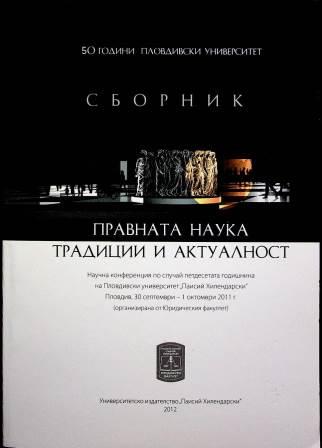Свобода на събранията
Freedom of Assembly
Constitutional aspects
Author(s): Emilia Drumeva
Subject(s): Law, Constitution, Jurisprudence, Constitutional Law
Published by: Пловдивски университет »Паисий Хилендарски«
Keywords: freedom of assembly; constitution; law on gatherings; meetings and manifestations; fundamental right; regulation
Summary/Abstract: The first Bulgarian constitution - the Tarnovo Constitution (1879), explicitly proclaims as an independent civil right (Article 82) the freedom of people to assemble on any issue, peacefully and without arms. With minor differences, the same content is reproduced in the current Constitution. In Bulgarian constitutionalism, the tradition of regulating the freedom of assembly in a separate provision has been established. In 1990, the Law on Gatherings, Meetings and Manifestations (LGMM) was adopted, which is still in force with amendments, most recently in 2010. It is intrinsic to democratic forms of government that citizens have the right to assemble and to discuss issues of common interest or to express and make known their views together, even if they do not coincide with governmental policy. The freedom to assemble is a classic defensive fundamental right against state interference. In essence, this right-freedom is a manifest form of the generic fundamental right. The right to freedom of peaceful assembly is also recognized by norms of international law, international treaties, and the EU Charter of Fundamental Rights.
- Page Range: 109-114
- Page Count: 6
- Publication Year: 2012
- Language: Bulgarian
- Content File-PDF

